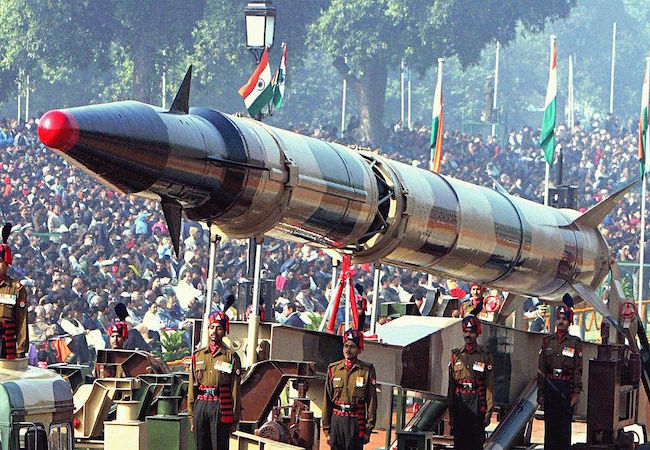
By Asma Khalid
India and Pakistan have been suspicious of each other since the time of independence. Their relationship has witnessed tensions, conflicts and even wars. The onset of nuclear weapons has added a new dimension to the rivalry. In March 2000 US president Bill Clinton had called South Asia as “the most dangerous place in the world”. The role of CBMs naturally becomes critically important for maintaining peace in this tense region.
To engage in strategic stability, both states India and Pakistan signed a bilateral agreement to reduce the risk of nuclear related risks. Actually this agreement came into force on February 21, 2007, when India and Pakistan signed agreement on “Reducing the Risk from Accidents Relating to Nuclear Weapons. “They held the Fifth Round of talks to review nuclear and missile related CBMs as part of the Composite Dialogue process in October 19, 2007. Now this agreement is extended for the period of five years from 2017-2022 and comprises a part of the Nuclear Confidence Building Measures (CBMs) agreed between Pakistan and India. Key objective of the agreement is to promote peace and stability among two countries. The agreement provides that the nuclear capability of the both states makes it imperative to avoid any conflict. Under the agreement, both states are binding to exchange information if any nuclear weapon related accident occurred under their control and respective jurisdiction, which could create the risk of nuclear war or radioactive fallout.
Such initiatives between both states would not just reduce the possibility of a surprise attack by either state, but would also allow the states to reduce the risk of accidental nuclear mishap. Such agreements will ensure better security situation in the region. Both India and Pakistan would be less wary of each other’s actions and intentions and thus their insecurities regarding each other would diminish greatly. The Nuclear CBMs would also help them resolve their political disputes and would help them find solutions to their long standing conflicts.
India and Pakistan have been suspicious of each other, the trust deficit is the greatest obstacle for these CBMs. Although CBMs provide the atmosphere for improving inter-State relations, and establish trust between adversarial states but some level of trust is even necessary before CBMs can be negotiated. Hence the existence of limited level of confidence is an essential prerequisite for effectively pursuing the CBMs. Conversely the association of India Pakistan has been such that leads them towards mistrust and suspicion. In the light of their past experiences both states always remain dubious of each other’s intentions and thus shape their policies accordingly.
Similarly the serious tensions and instabilities characterizing the Indo-Pak relations them self-hinder the application of nuclear CBMs. These measures require an environment of continuous adherence, but the intermittent skirmishes between both states disrupt this process and thus thwart the effective implementation of CBMs. It is recognized that CBMs are difficult to establish but easy to disrupt. As soon as a crisis occurs the states leave behind the confidence building process and their compliance to these measures. India and Pakistan follow the same path, therefore hamper CBMs. So it is important that CBMs should also be maintained in the emergency situations like the normal times.
The introduction of nuclear weapons in South Asia has serious repercussions for the regional security. However history reveals that both India and Pakistan have moved forward in their Confidence building process. Even if the success is not very magnificent, it’s not that gloomy either. The pressing need of nuclear CBMs for Socio-economic development of both states and for the security of the region is strongly felt. And this realization paves way for a sustainable and continuous peace process in the region. The implementation of effectual nuclear CBMs between India and Pakistan is the need of the hour and the most appropriate way forward for both states. The nuclear CBMs would aptly provide means to bring about a fundamental shift in the existing security environment of South Asia. These CBMs will foster economic, political and security cooperation amongst India and Pakistan by enhancing trust, reducing the chances of misinterpretations and inhibiting the use of force by both states. During the new wave of frosty relations, the peace initiatives between India and Pakistan are a beam of light. If the two countries are successful in establishing effective nuclear CBMs they can harvest huge benefits.
Asma Khalid is a Research Associate at Strategic Vision Institute, a think-tank based in Islamabad.




